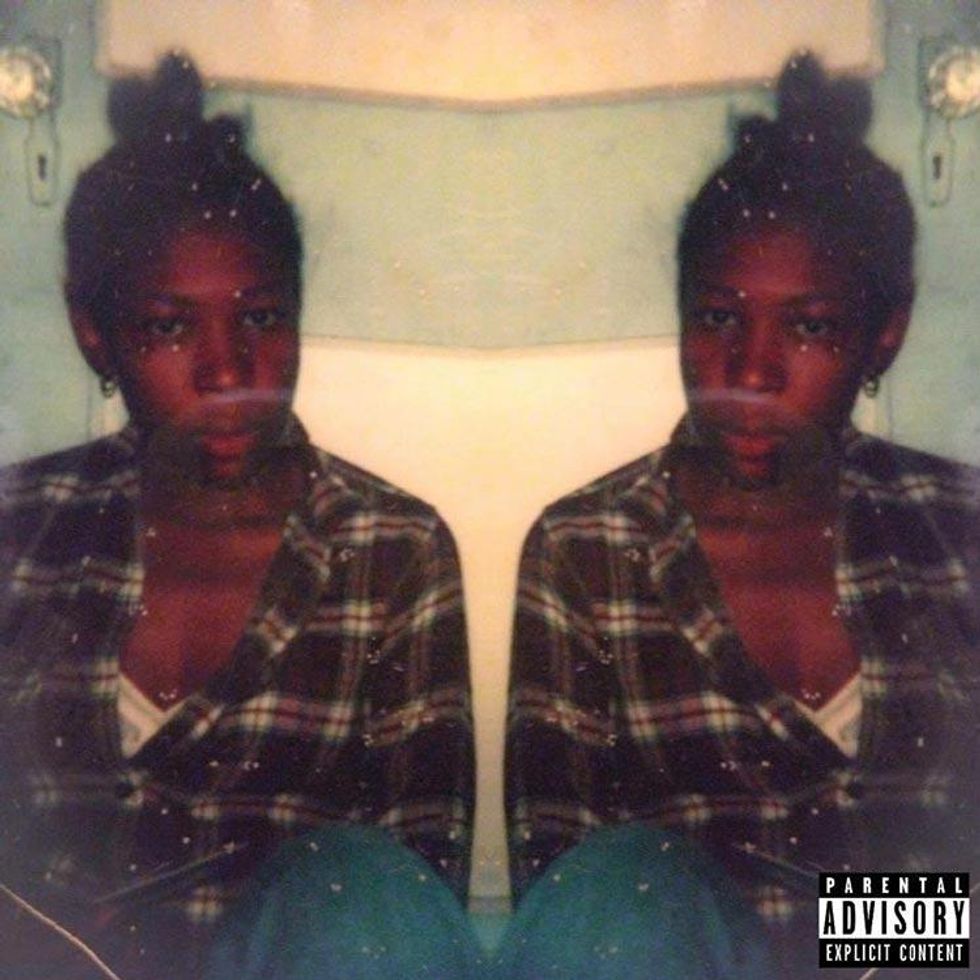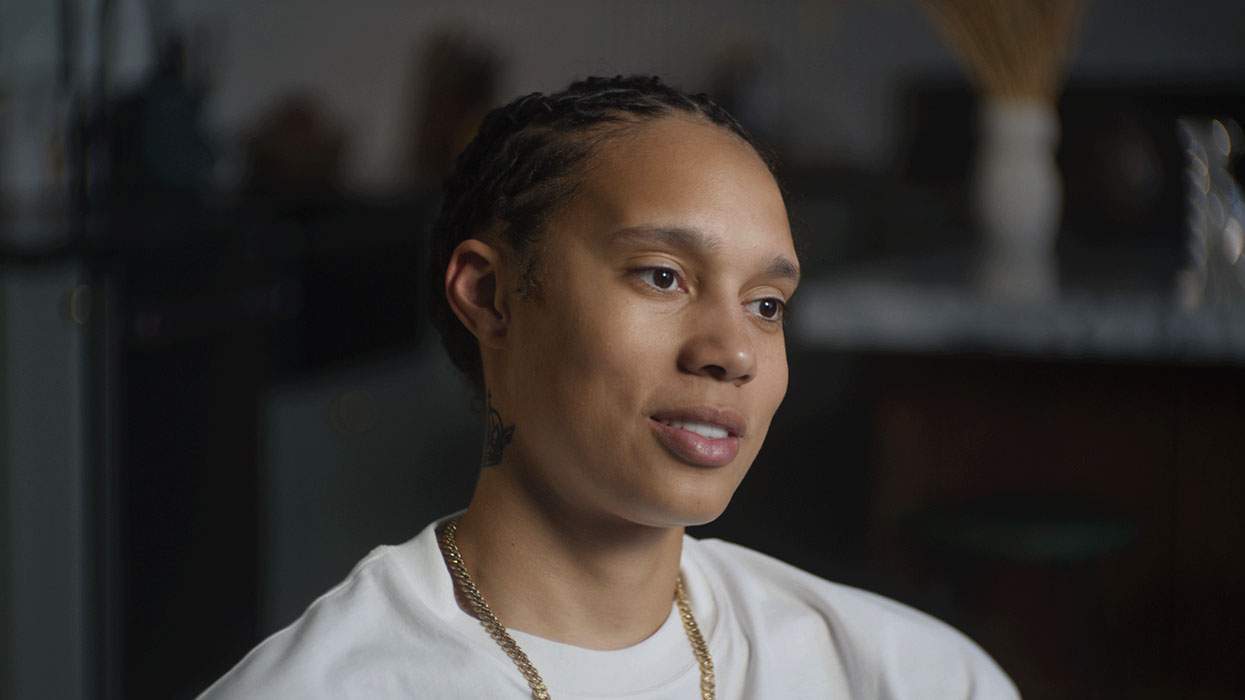The mainstream face of hip-hop music might not look very queer or trans now, but if the artists on indie label Futurehood have anything to say about it, that's about to change.
And these future legends of hip-hop have a message: Get on board and don't be late to the revolution.
Booties have been popping all over the world since Futurehood cofounder Mister Wallace released his debut single this month. "It Girl", shown below, is a high-energy track with an infectious beat that not only makes you feel fabulous but also makes you think. Developed during this moment in history, when Wallace and all people of color are trying to find a way to deal with the effects of state violence, the track represents the efforts of a movement to redefine what hip-hop is and who is making it.
The track -- indeed, the entire label -- also serves as an unapologetic proclamation to ensure that the world knows queer and trans people of color are making fiery hip-hop that reflects all parts of their experience. What's more, they're doing it on their own and helping others to do the same.
"Our whole objective is to show what the future looks like," Mister Wallace, also known as Erik Wallace, tells The Advocate via phone. "[It] is also showing what the present is, because we are alive. We are here. We are now. We are producing work."
The Chicago-born and Brooklyn-based rap artist released his debut EP, f****t, earlier this year, realizing that his sound wasn't likely to find a welcoming home on a mainstream label.
"Instead of waiting to be found or discovered or had or accepted, we decided no, let's really tell the story we want to tell and put it out ourselves," says Wallace.
Wallace's choice to name his debut EP f****t -- then release it on a label founded by and for queer and trans people -- might seem contradictory. But Wallace really doesn't have time for that noise. In an interview with Thought Catalog, he explained that the EP's title is intended as a way to clap back at those who try to put him in a box as a "gay/queer rapper."
"FutureHood and f****t [exist] to resist the [hetero]normativity and to redefine what's normal," Wallace tells The Advocate. "It's about redefining and creating a visual representation or a physical manifestation in the world that allows people to be like, 'Oh, yeah, that's where I am.'"
Wallace created FutureHood with his friend and rap partner Anthony Pabey with the explicit intent of supporting queer and trans artists of color. The pair share a longtime love of music, specifically hip-hop, but they found themselves hungry for tracks that were more in tune with who they are.
Artists like Lil' Kim, Trina, A Tribe Called Quest, Method Man, and others shaped Wallace and Pabey's love for the genre, but now the two men are ready to define their own future. And what they're creating isn't just a "queer rap scene," they say, but rather a "wave of ideas."
"We saw for ourselves that there was this community out there that was ready for this kind of music," Pabey, also known as AceboombaP, tells The Advocate via phone. "I really feel like the queer rappers are the purest form of what rap is and what hip-hop is."
Wallace met Pabey one night at a north side Chicago club that Pabey ran at the time, where he also met DJ 1WO (pronounced "one-two").
"My driving force was to create a space there that was what [Chicago gayborhood] Boystown was not providing, giving, or sheltering," explains Pabey.
Wednesday night at Pabey's club was Banjee Report night, a weekly party spinning the "cunt beats" (music from the ballroom scene) that became a haven for the community. The party eventually turned into a podcast, which itself turned into releasing music and performing as a rap group under the same name. Pabey says the process of supporting themselves and making music and touring as Banjee Report inspired them.
But starting a label wasn't what the pair set out to do at first.
"I heard horror stories of people used for their talents and exploited ... and the monetary gain really wasn't there," explains Pabey. "I think that's where FutureHood is born out of: the desire not just to control our own [art] but to be able to provide a platform and provide realistic means to voices that did not exist previously [because] the roads were not there for them."
One of those whose voice found an amplifier on FutureHood is rapper Kaycee Ortiz. The Alabama native moved to Chicago and met Mister Wallace, who she says helped develop her sound.
"I really want to use my voice to bring awareness to what is going on," Ortiz tells The Advocate via phone. "I want to bring something to the table that's going to uplift people and make people say, 'I don't have to stay in this situation.'"

"To have to live that lie everyday became so overbearing," says Ortiz, adding that she only joined the military because the other option was being kicked out of her home. "It became such a burden to wake up every day and have to pretend to be something I wasn't. ... It was scary getting out, but I felt like I just wanted to be myself."
Ortiz released her first mixtape this year, a 16-track compilation, calling it Beach Street as an homage to the first home her grandmother purchased. Since those early days of struggle, she says her family has done "a complete turnaround," and now accepts her fully.
"To have a relationship where I feel like I can talk to my family about anything and they can accept me, it's beyond my wildest dreams," she says.
Ortiz, like others with FutureHood, wants her music to be what people talk about, instead of her sexual orientation or gender identity.
The fact that FutureHood's artists are queer people making rap music just means that they have more things to say -- especially on topics like drug use, misogyny, and other issues that often get swept under the rug by the LGBT community. But mainstream approval, they say, is neither desired nor required.
"They didn't give Sylvia Rivera the mike back in the day, and she screamed and let those motherfuckers have it," explains Pabey. "That's still us. We're still here. So we're gonna say it regardless, we're gonna talk about it regardless."
Find music by Mister Wallace, including his f****t EP, on Bandcamp, and catch more music from FutureHood - including dance remixes - on the label's SoundCloud page.















Charlie Kirk DID say stoning gay people was the 'perfect law' — and these other heinous quotes
These are some of his worst comments about LGBTQ+ people made by Charlie Kirk.